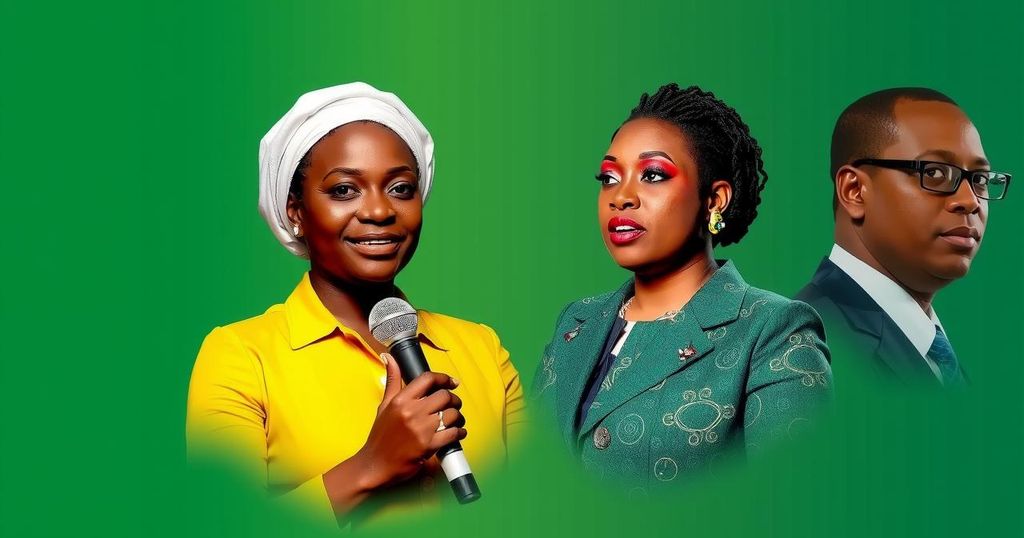Ghana’s Upcoming Presidential Election: Key Candidates and Issues
Ghana’s presidential election is set for December 7, featuring Vice-President Mahamudu Bawumia and former President John Mahama as the leading candidates. Significant issues include economic challenges, high inflation, and the environmental impact of illegal mining. Voters will also elect representatives in parliamentary elections. Results are anticipated by December 10, with the election marking a milestone in Ghana’s political history since the reintroduction of multiparty democracy.
Ghana is preparing for a significant presidential election on December 7, as Vice-President Mahamudu Bawumia of the New Patriotic Party (NPP) and former President John Mahama of the National Democratic Congress (NDC) emerge as the primary candidates. This election marks a pivotal moment in Ghana’s political landscape, as it is the country’s ninth since adopting multiparty democracy in the early 1990s. Ghanaians will participate in simultaneous presidential and parliamentary elections, where 12 candidates will contest for the presidency and voters will elect representatives in 275 constituencies.
Mahamudu Bawumia, an experienced economist, aims to make history by becoming the first Muslim president in Ghana, despite facing criticism for the country’s severe economic challenges during his tenure as vice-president. Conversely, John Mahama seeks a comeback after previously serving as president before losing the 2016 election, advocating for an urgent economic reset amid rising inflation and poverty levels. Other notable candidates include businessman Nana Kwame Bediako, who appeals to younger voters, and Alan Kyerematen, a former minister whose departure from the NPP signals potential shifts in voter loyalties.
The primary concerns for voters revolve around the economy, particularly the rising cost of living and unemployment, with inflation peaking at 54% in late 2022, leading to widespread poverty. Additionally, the environmental impact of illegal gold mining—known as “galamsey”—has catalyzed public demonstrations, with both major parties proposing differing approaches to the issue. Parliamentary elections will adopt a first-past-the-post system, while the presidential vote requires a candidate to secure more than half of the votes for an immediate win. If necessary, a runoff will occur later in December.
In Ghana’s political landscape, elections have historically been characterized by peaceful transitions and competitive races, especially since the reintroduction of multiparty politics in the early 1990s. The current electoral cycle is shaped by significant economic issues, including high inflation, unemployment, and the pressing needs of the populace amid ongoing challenges faced by the current administration. The election represents not only a choice between candidates but also a decision on the direction of Ghana’s economic recovery and governance strategies moving forward.
The upcoming election in Ghana on December 7 is a crucial juncture for the nation, with economic stability and environmental concerns at the forefront. As Mahamudu Bawumia and John Mahama lead the charge, their contrasting visions will shape the country’s future. With the electoral commission expected to announce results by December 10, the stakes are high for Ghanaians as they navigate significant decisions regarding leadership and national priorities. This election not only reflects the candidates’ abilities to address pressing issues but also exemplifies Ghana’s ongoing commitment to democratic processes.
Original Source: www.bbc.co.uk




Post Comment